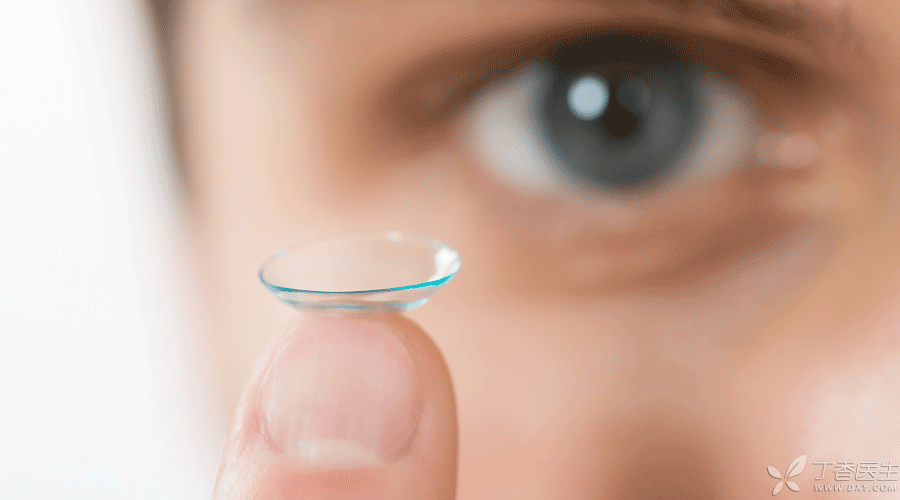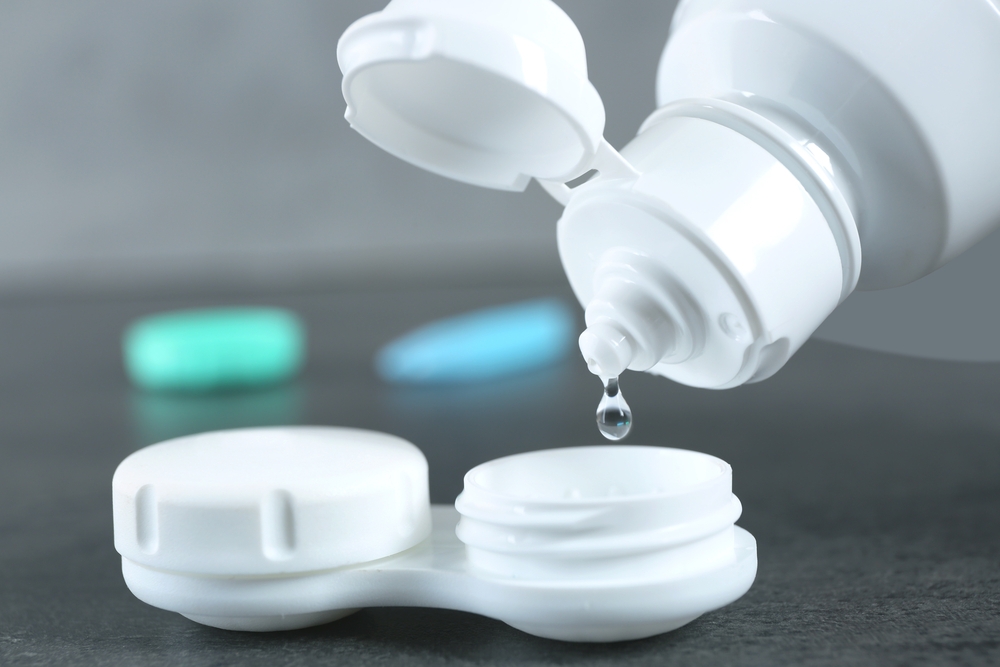
Many people in order to beauty, convenience, will choose to wear contact lenses, commonly known as contact lenses. According to the material, contact lenses can be divided into soft contact lenses and hard contact lenses, usually we choose the most is soft contact lenses. If there is no special explanation below, it refers to soft contact lenses.
Do you think contact lenses are just for girls to make more beautiful decorations? There is a lot of attention in it. Dr. Clove invited professional ophthalmologists to answer some of the most common questions.
1. I want to match contact lenses. What tests should I do?
If you want to match contact lenses, it is recommended to go to the hospital to consult an ophthalmologist or optometrist to find out if there are any situations that are not suitable for matching contact lenses. The doctor will use slit lamps to check, measure some eye parameters, carry out wearing evaluation, and inform some matters needing attention.
The assessment of the fitting state of the lens includes lens mobility, center positioning, whether there is congestion and redness of the eyes, whether there is change in vision, corrected vision, and personal comfort feeling, etc.
If you buy your own clothing, there may be certain risks, so it is recommended to go to a professional organization for matching.
2. What are the circumstances that are not suitable for wearing contact lenses?
Because contact lenses are in direct contact with the surface of the eyes, they are not suitable for wearing if there is any active inflammation of the eyes (such as redness and itching of the eyes), severe dry eye, and allergy to contact lenses or nursing solutions that have occurred before.
3. Is the power of contact lenses the same as that of frame glasses?
There will be some differences between the power of contact lenses and that of frame glasses, mainly because the distance between the two lenses and the eyeball is different.
Contact lenses are directly attached to the corneal surface, while frame glasses are 12 mm in front of the eyes. Generally speaking, for myopic people with more than 400 degrees, the degree when choosing contact lenses needs to be slightly lower than the degree of frame glasses, while farsighted people are the opposite.
4. Which is better, silicon hydrogel lens or hydrogel lens?
Generally speaking, silicon hydrogel is better and more expensive, but it is not absolute.
Hydrogel lenses have good water absorption, softness and high comfort, but their oxygen permeability is generally not high, and long-term wearing is easy to cause dry eyes. The surface polarity of the material is strong, and it is easy to absorb sediments in tears, which is not suitable for long-term wearing.
Silicon hydrogel lens is a relatively new material, which is the combination of fluorinated siloxane and hydrogel, and its oxygen permeability is obviously higher than that of hydrogel lens. Moreover, the material has anti-precipitation property, which can avoid corneal hypoxia caused by long-term wearing. However, the lens has less moisture and feels hard. When wearing it for the first time, you may feel uncomfortable.
At present, domestic lenses are made of hydrogel material, and some of the early imported weekly, monthly, even half a year and annual lenses are also made of hydrogel material. Newly imported 2-week or monthly lenses are generally made of silicon hydrogel material. You can check on the outer package of the product.
5. I don’t wear it every day. Which contact lens can I choose?
If you wear it 3-4 times a week or only occasionally, disposable hydrogel lenses will be a better choice and economical.
If you wear the lens frequently or for a long time in a day, it is recommended to choose a 2-week or monthly lens made of silicon hydrogel. However, the lens should be taken off every day for lens cleaning and care.

6. What problems may occur when wearing inappropriate contact lenses?
(1) Corneal hypoxia: In order to maintain the transparency of the cornea, there is no direct oxygen supply from blood vessels, and oxygen is absorbed through air. Wearing lenses with low oxygen permeability for a long time will lead to corneal hypoxia and corneal epithelial damage, which may cause long blood vessels on the cornea in the long run and affect vision.
(2) Allergic reaction: In the process of wearing contact lenses, metabolites in the eyes will deposit on the lenses. If the lenses are not properly cared for, it will cause eye allergic reaction, which is manifested as red eye, itching eyes, eye pain and increased eye excrement. It is necessary to stop wearing contact lenses at this time.
(3) Corneal injury or infection: If it is not properly worn, it may damage corneal epithelium, and the eyes will feel uncomfortable, foreign body sensation, fear of light, tears, etc., which may become keratitis in serious cases.
(4) Dry eye: Wear soft contact lenses for too long, especially for lenses with high water content. The contact lenses will absorb water from the eye surface and cause dry eye, which is manifested as foreign body sensation, dryness sensation, burning sensation, blurred vision, increased secretion, etc.
7. Does the oxygen permeability of contact lenses have what significance?
The oxygen permeability of contact lenses will affect the oxygen supply of cornea. Contact lenses made of different materials have different oxygen permeability. In medicine, oxygen permeability coefficient less than 50 is called low oxygen permeability lens, 50 ~ 90 is medium oxygen permeability lens, and greater than 90 is high oxygen permeability lens. Different oxygen permeability lenses have different requirements on wearing methods and time length.
In order to maintain normal corneal physiology, the oxygen permeability coefficient of daily lenses should be above 24, while that of overnight lenses should be above 87.
8. Do you need to take off your contact lenses when taking a nap or sleeping at night?
It doesn’t matter if you wear it occasionally during your nap. If you wear it frequently, it is recommended to choose lenses with high oxygen permeability.
Ordinary lenses cannot be worn overnight, only special lenses can be worn.
9. Can I wear contact lenses when swimming?
It is not recommended to wear contact lenses when swimming, because it is easy to cause inflammation.
10. Can color contact lenses [beautiful pupils] be worn every day?
Because color contact lenses are generally not highly oxygen-permeable materials, it is not recommended to wear them for a long time every day. It is recommended to choose daily projectiles or short-period lenses.
And must buy regular brand lenses, don’t covet cheap to buy fake and inferior products.
11. How should contact lens lenses be cared for?
Every time the lens is removed, no matter how long it is worn, cleaning care should be carried out.
The general situation is to clean and nurse once a day with full-function nursing liquid and once a week with protease tablets, which can remove about 70% of the sediment, but some substances adhered to the lens material matrix will still settle down, so the lens cannot be used all the time.
